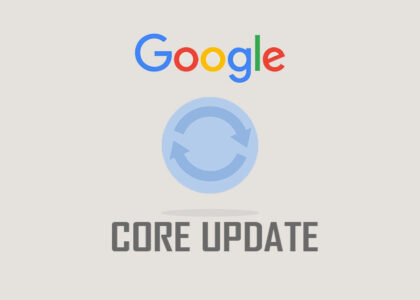Ranking on Google can be a daunting experience and indefinable for most businesses. With billions of websites out there, it seems elusive how Google the greatest of the search engines determines easily which website makes an impact when compared to other websites. Wondering how things cook up at Google’s end? Since Google’s coming in 1918, this search engine has aimed to collate information and make it accessible to the audience.
With a storehouse of information available on the internet, accomplishing it was no easy task for Google as well; rather it seemed a rather unachievable feat. Thanks to the ranking systems of Google. They have the finest and most intelligent algorithms to explore billions of websites to determine which website offers the most relevant results within a fraction of second. So, time is of the essence for people searching for information on Google and the ranking systems have a role to play.
What is Google’s ranking system?
The Google search ranking systems are automated and factor in various humongous web pages and content present in the search index. As discussed earlier, the aim of the search engine is to publish the most fruitful and pertinent result to the viewer in just about time. At Google’s end, the experts follow an ongoing process of screening and rigorous evaluation to provide those updates related to ranking systems that are deemed to benefit everyone from content creators to the people viewing the information.
Here is the snapshot of understanding Google search ranking factors and the notable aspects therein. Naturally, there are various processes and systems of core ranking. Apart from this, the factors mentioned here also take in Google’s underlying technologies to produce relevant search results while responding to customers’ queries. Alongside this, it also mentions those systems that are related to ranking.
- Information systems to deal with a crisis
Alerts of SOS
During a worldwide crises or in times of natural disasters, the SOS alert displays all the possible updates from genuine sources and authorities at the international, local, or national level. These updates may include various things emergency website links and phone numbers, useful phrases translated to various languages, and opportunities if any related to donation. When it comes to Google alerts during a crisis, the SOS alert system is at work to provide information about storms, wildfires, floods, landslides, hurricanes, etc.
Personal crisis
While people seek help during a worldwide crises, they feel equally clueless during personal disasters and need assistance. That is when Google displays content from trusted and credible sources. What situations may make people access such information? Such information is majorly related to sexual assault, suicide, gender discrimination, ingestion of poison, or any other form of violence.- BERT
- Exact match domain systems
- Helpful content system
- Deduplication systems
- Freshness systems
- Local news
- Neural matching
- Page experience system
- Reliable information systems
- Original ranking systems
- Passage ranking system
- Product reviews system
- RankBrain
- Demotion systems and removal of content
Google has come out with systems that provide information related to the different crises, like natural calamities, a worldwide crises like the global pandemic, or personal crises. Read on to know more:
The Bidirectional Encoder Representations from Transformers or BERT refer to the AI systems that the search engine uses to make people understand how combining the same words differently may alter the meaning and the objective behind them.
This is another of the search ranking factors that consider specific words present in the domain names to find out the relevance of the content. However, the search engine does not give too much importance to content under domains that are designed to match the exact queries of viewers. For instance, the best places to visit in summer may be designed under a domain name to deliver exact results but it won’t be that easy as the systems of the search will play their cards right to ensure that the audience gets the desired result in the nick of time.
The helpful content system determines that content written is people-centric and is of genuine help to the viewers instead of write-ups that aim to gain search engine traffic.
Several searches on Google match each other closely but don’t worry! The search engine has algorithms that ensure that only relevant results are displayed. You can check Google’s guide to find out how the deduplication system works in-depth and how to check the removed results incase it is duplicated.
Google’s ‘query deserves freshness’ systems display content that is fresh based on the generation of queries. For instance, when searching for political news, people mostly look forward to the latest happenings in countries, especially during wars or unrest instead of obsolete data.
Searching for local news related to recent events? The search engine’s algorithms are at work to display the most pertinent result when you type ‘top news’ on the search bar.
Neural matching is an AI-based system that Google uses to understand what various concepts in queries stand for and what pages that match against each other.
Viewers prefer sites offering an excellent page experience and that is when Google’s page experience system comes to play. What is it all about? The factors they take in are the loading speed of the page, responsiveness, whether pages have been designed securely, or if the intrusive interstitials are absent. In cases, where the matches seem more relevant, the system displays that content as offering a better page experience.
Reliable information systems are in place to display more reliable information and allow the authoritative pages to come forward and de-popularize, low-grade content. When there is a severe lack of reliable information, the system displays what is known as content advisories about changing the topics or searching tactics to get more relevant results.
Google has systems that ensure only original content surfaces based on search queries. The system also gets support from a canonical markup that content creators may use for the primary page if is has already been duplicated in several pages.
Passage ranking is another Ai-based system that ensures that certain parts of content are more revenant to the search engine results.
The product reviews system aims to help original product reviews and genuine research to stand out and is usually created by people who have in-depth knowledge of those products.
RankBrain is an AI-based system that relating words to various concepts. It ensures that Google delivers better results even if the search query does not have the exact words to match.
The search engine also has specific policies to remove content and when a high amount of such removals take place, it is used as an indicator to improve the search results.
Retired ranking systems
The retired ranking systems serve historical purposes and are either a prat of the core ranking systems of Google or its successor system.
Page speed system
Penguin system
Mobile-friendly ranking system
Hummingbird
The page speed system came about in the 2018 update also called the “Speed Update” and implies that content that will load faster and appear quickly in the search results of mobile devices would get more preference.
This system was originally designed to deal with the link spam and came in the 2012 update also called the “Penguin Update” which was later made a part of Google’s core ranking systems in 2016.
When several relevant contents appear in Google’s results, the mobile-friendly ranking system gives preference to those that appear in the mobile search results.
This one is considered one of the majorly updated among Google’s ranking systems and the rest of the systems followed suit. Since then, the ranking systems have continued to evolve as it is still the norm of the search engine.
If you have more queries about and need a guide to Google search ranking systems, visit Search engine Round for help. We publish content to help people become aware of the digital marketing world.





